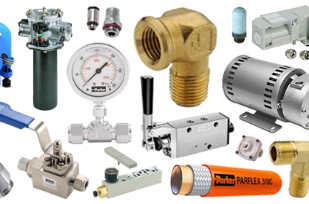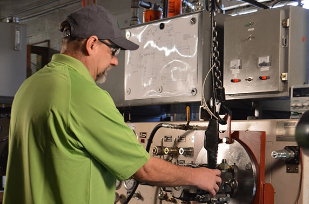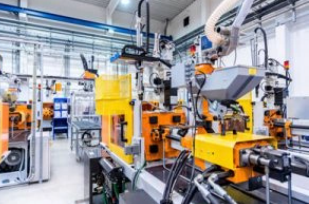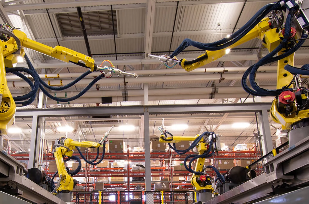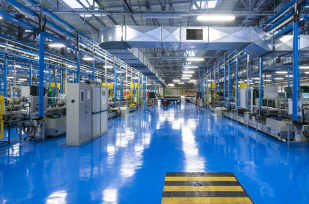
We know, wild title, right? Just what impact will rocking piston compressors or any compressors, for that matter, have on the lifespan of carrots and cucumbers?
Well, as it turns out, a lot. Your mileage may vary depending on the grocery store setup, but most grocery stores spray mist onto their veggies with compressed air.
Misting systems combine compressed air and water to atomize filtered water all over the veggies they help display. Not only does this mist keep the produce fresh, but it also makes the veggies look more delicious, and it uses less water than hand watering. Most displays also have a gentle air curtain to keep bugs away.
Read on to learn why compressed air is as essential to fresh veggies as breathing is to us.
How Does a Rocking Piston Compressor Work?
The way a rocking piston compressor works is pretty antiquated. In fact, rocking piston designs date back to the early days of the industrial revolution. All you need to make these systems work is a cylinder, a piston, and a crankshaft.
The crankshaft is typically driven by an electrical motor that rotates and pushes the piston up and down along its track. However, unlike more conventional designs we might see in a car, or even in a lawnmower, rocking pistons don’t hinge at the piston head. This means that the piston moves in a more circular motion instead of a more standard up and down motion.
So, instead of piston rings, a rocking pump has one larger seal outside the piston chamber.
These pumps are fascinating and, in many ways, the rocking piston air compressor is an excellent, modern-day example of an “if it ain’t broke, don’t fix it” mentality.
Here are the four reasons a rocking piston pump should be cooling down your produce.
1. They Can Be Serviced Easily
As we said, this type of pump has been around for the sum total of forever.
That means that these compressors’ design and tech have remained fundamentally the same over all that time. Sure, modern rocking piston air compressors have a little more tech in them than any would’ve had in the industrial revolution, but these machines are still relatively simple.
Repair kits for these robust little compressors are often fairly cheap and easy to use because, most of the time, all you need to complete the service is a handful of basic tools.
Also, because these machines don’t have piston rings, you rarely (if ever) have to worry about rebuilding the engine. If you notice a loss in compression, swap out the seal. Easy as that.
Usually, this seal replacement won’t take you more than a half-hour of labor, and it’s well worth the effort.
2. Piston Compressors Operate Cleanly
There’s a reason why these little monsters are often used in pond aeration. The pistons in these machines don’t use oil-based lubrication. Instead, the manufacturer relies on the interactions between different materials to create a piston that won’t stick or weld to the piston casing.
Due largely to their oilless operation, rocking pistons don’t emit pollutants into the surrounding area. That means that your food and your employees will both be safe from oil particles and harmful gasses that other compression systems might generate. The pumps are very popular in labs and in closed rooms or clean rooms that can’t be contaminated.
3. They Last Forever
Most of these compressors will last you close to a decade before they need any service or care. Of course, depending on how you treat the compressor and where it’s placed, your mileage may vary.
Even when your compressor starts to lose its effectiveness, all hope is not lost. In fact, hope is just right around the corner.
As we mentioned earlier, Gast rocking piston air compressor designs don’t require piston rings; they only need rubber gaskets around the top of the head and around the piston holes. That means that, even if your compressor loses compression, you’ll have only an easy fix on your hands.
It’s also pretty easy to tell when these gaskets need to be replaced as well. Once you start to notice your gast piston air compressor struggling to fill itself, then the time to replace your gasket has come.
4. Rocking Pistons Are Often Cheaper
Rocking piston compressors give you a huge advantage when it comes to price as well. Precisely because these compressors use older, more straightforward tech, they can out price other similarly effective compressors.
The savings don’t stop there, though. As mentioned several times now, these tools can be serviced incredibly easily with just a few tools and a cheap rubber gasket. That bumps these compressors up into another category of budget compatibility.
Not only will the upfront cost of these compressors often be less, the lifetime operating cost will be virtually nothing. All you need is basic handtools, electricity, the upfront installation fee, and a replacement gasket every five to ten years.
You can even buy more compressors and double your output with what you saved by going with a rocking piston air compressor.
Want Fresh Produce? Get Rocked
It would be relatively evident by now that rocking piston air compressors are a fantastic way to drive the misting machines that keep fresh produce fresh.
So, where’s the catch? Well, there isn’t much of one. The main disadvantage of rocking piston air compressors is that they don’t typically produce as much power as other compressions solutions.
Even though these machines do have one or two disadvantages, we believe that the plusses outweigh the minuses. After all, you don’t need a V8 to drive a vegetable misting system. You just need a reasonable amount of compressed air at a decent price.
If you’re looking for an upgrade, then check out our line of rocking piston compressors by Gast in our online store.


